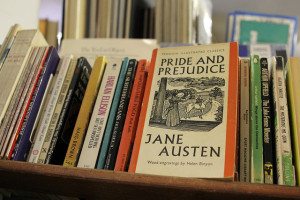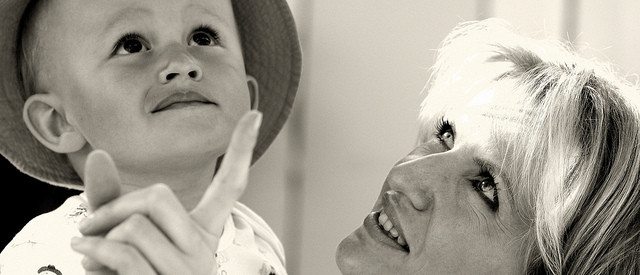Mothers of the literary world
Seeing as Mother’s Day has just passed it seemed an appropriate time for Books writers to have their say on famous mums in literature. Some fictional mothers are continually loved by all who read about them: Molly Weasley, Mrs March and Marilla Cuthbert to name a few. Others are perhaps not so likeable…
Fantine – Les Misérables
 What makes a good mother? At its base level, a good mother is one who cares for her child, doing the best she can no matter what the circumstances, and no mother succeeds at this more so than Les Miserables’ Fantine. Throughout Victor Hugo’s tale, Fantine suffers so much but is willing to face any indignity to ensure that her daughter is being cared for. The fact that she isn’t, of course, makes her tale all the more tragic.
What makes a good mother? At its base level, a good mother is one who cares for her child, doing the best she can no matter what the circumstances, and no mother succeeds at this more so than Les Miserables’ Fantine. Throughout Victor Hugo’s tale, Fantine suffers so much but is willing to face any indignity to ensure that her daughter is being cared for. The fact that she isn’t, of course, makes her tale all the more tragic.
After spending three years with her lover, Fantine is abandoned and heartbroken, left to care for their illegitimate child Cosette alone. She leaves her with the Thenardiers and finds herself a job, solely to pay for Cosette’s continued care. The Thenardiers, however, mistreat her and make up stories designed to extort money from Fantine. She, worried about her child and desperate to help her, keeps sending more and more money.
She is the ultimate mother – a woman who gives everything to secure the life of her child.
This is upsetting enough but when Fantine loses her job and the demands for money increase, her situation gets much worse. In order to find the money for her daughter’s medicine, she sells her hair, turns to prostitution and tears out her own teeth. Circumstances take her to a hospital bed, where she dies, eager to see her daughter until the very end. The tragedy of Fantine is that she suffers due to the greed of others, who play on the strength of her motherly love, causing her to lose her beauty and her purity. She becomes a martyr through her devotion and her suffering inspires Jean Valjean to save her daughter. She is the ultimate mother – a woman who gives everything to secure the life of her child.
Reece Goodall
Mrs Bennet – Pride and Prejudice
 Whilst Mother’s Day asks for children to celebrate and turn a blind eye to every motherly fault and eccentricity, an exception must be made for the formidable Mrs Bennet in Jane Austen’s Pride and Prejudice.
Whilst Mother’s Day asks for children to celebrate and turn a blind eye to every motherly fault and eccentricity, an exception must be made for the formidable Mrs Bennet in Jane Austen’s Pride and Prejudice.
Arguably a character whose every action could be the punchline for those nightmarish mother-in-law jokes exhausted by washed-up 70s comedians, Mrs Bennet is tenacious to the point of terrifying. No obstacle is allowed to interfere with her plans for marrying her daughters off into the wealthiest prospects possible. Unconditional love is not a term that enters Mrs Bennet’s vocabulary; blatant favouritism is afforded to whichever daughter she feels will make the best match and she has no qualms about embarrassing her independently minded children in the process.
Mrs Bennet’s determination to throw her daughters into the paths of rich men only grows greater throughout the novel. She forces the frail Jane into a not-so-pleasurable horseback ride to Netherfield which ends up making her ill – quite unlike the average mother who tries to wrestle you into a coat every time you leave the house. Endangering your children is not a good motherly trait. Who knew?
 Yet at the same time, I can’t help but have a grudging respect for Mrs Bennet. Admittedly she is obsessed with her ‘nerves’ and fails to ever respect or listen to her more knowledgeable daughters. Furthermore, she packs off her relatively sheltered 15-year-old onto the old fashioned equivalent of a booze cruise and refuses to blame herself for the consequences. But she overturns rigid social conventions, ignoring propriety, class barriers and her husband, to help provide for her daughters in one of the only ways possible for women in Austen’s contemporary era. Undoubtedly, she is a force to be reckoned with. I’m just glad that she isn’t my mother.
Yet at the same time, I can’t help but have a grudging respect for Mrs Bennet. Admittedly she is obsessed with her ‘nerves’ and fails to ever respect or listen to her more knowledgeable daughters. Furthermore, she packs off her relatively sheltered 15-year-old onto the old fashioned equivalent of a booze cruise and refuses to blame herself for the consequences. But she overturns rigid social conventions, ignoring propriety, class barriers and her husband, to help provide for her daughters in one of the only ways possible for women in Austen’s contemporary era. Undoubtedly, she is a force to be reckoned with. I’m just glad that she isn’t my mother.
Laura Cunliffe-Hall
Image Credits: Header (Flickr/Rudolf Vicek), Image 1 (Facebook), Image 2 (Flickr/Raine D), Image 3 (Flickr/AbeBooks)

Comments